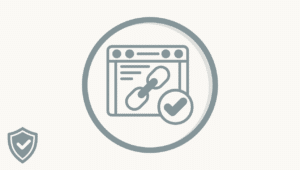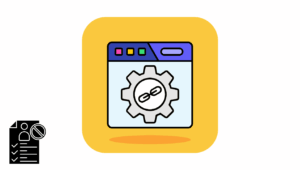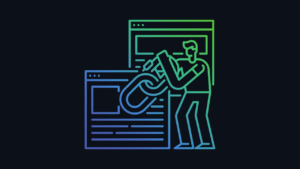Google rewards people first content and trustworthy sources. Links still influence who gets seen, yet volume without relevance no longer works. The AI era has made it easy to blast generic outreach and spin lookalike posts. That noise makes authentic signals even more valuable. This guide shows how to earn links that lift Experience, Expertise, Authoritativeness, and Trustworthiness. You will learn what editors want today, how to use AI without sounding robotic, and how to measure the impact on rankings and revenue. In this article, we’ll go beyond quantity and discuss how to earn E-A-T, boosting high-quality backlinks in the AI era.
Understand What Search Quality Evaluators Look For
E A T is a practical checklist when you build links. Experience shows up in firsthand examples, data you collected, and field photos. Expertise shows up in clear explanations, citations, and consistent bylines. Authoritativeness shows up when respected publications reference your work.
Trustworthiness shows up in transparent policies, accurate facts, and stable pages. When a backlink originates from a credible page that endorses useful work, all four signals grow together.
Shift From Link Building To Citation Earning
Think like a publisher who needs sources, not like a vendor who needs links. Pitch assets that help writers explain a topic faster or more clearly. Make it easy to quote you, embed a chart, or point readers to a definitive walkthrough. The moment you remove friction for busy editors, you shift from asking for a favor to solving a problem.
What Makes High Quality Today: Earn E-A-T Boosting High-Quality Backlinks in the AI Era
Three qualities separate links that move the needle from links that pad reports. Relevance between the linking page and your page, visible editorial context around the mention, and a credible site with real readers. Placement matters.
A mention in the body of an article beats a footer or author box. Natural anchor text beats keyword stuffing. A link that sends referral traffic and engagement is usually the same link that improves rankings.
A Quick Selector Table For E A T Friendly Link Plays
| Tactic | How It Lifts E A T | Effort Level | Where The Link Usually Lands |
|---|---|---|---|
| Original Mini Studies | Shows firsthand experience and expertise with fresh numbers | Medium | News posts, industry blogs, university pages |
| Visual Explainers And Calculators | Demonstrates expertise through clear teaching and useful tools | Medium | Body embeds, resource hubs, curriculum pages |
| Expert Round Tables With Receipts | Combines authoritativeness from multiple voices with source links | Low | Trade magazines, community newsletters |
| Data Backed Definitions And Glossaries | Builds trust with precise language and citations | High | Wikipedia talk pages, style guides, knowledge bases |
| Event Recaps With Quotable Takeaways | Shows experience in the room and helps speakers cite you | Low | Speaker blogs, conference sites |
| Localized Benchmarks And Indices | Adds relevance for regional publishers and agencies | Medium | Local press, chambers, city portals |
| Translation Partnerships | Shares expertise across languages with mutual citations | Medium | International blogs and professional associations |
| Image And Chart Credit Reclamation | Converts uncredited uses into proper attributions | Low | Article bodies and captions |
| University And Nonprofit Collaborations | Borrows authority through co created resources and studies | High | .edu and .org resource pages |
| Open Source Or Template Libraries | Earns citations when teams reuse your work | Medium | Docs, repos, design system blogs |
Pick two or three tactics and commit to them for a quarter. You will earn steadier, safer links than any short term blitz.
Use AI As An Assistant, Keep Humans In Charge: Earn E-A-T Boosting High-Quality Backlinks in the AI Era
AI drafts, clusters, and summarizes. People decide, verify, and add nuance. Let models research comparable studies, suggest gaps, or propose outreach angles. Then edit for tone, accuracy, and relevance to the specific outlet. Share sources. Keep claims modest. Never let AI fabricate quotes or data. A helpful, transparent pitch is the fastest way to stand out in an inbox full of generic messages.
Create Link Worthy Assets Editors Actually Need
Editors rarely link to opinions. They link to reference material. Aim for one of these formats.
Short Benchmarks That Refresh Quarterly. Gather ten to twenty data points that answer a pressing question in your niche. Keep methodology consistent and publish an update schedule.
Explainers With Visual Layers. Teach a complex topic with diagrams, step by step screenshots, and short definitions. Embed codes and downloadable images make citing easier.
Public Templates And Calculators. Provide a calculator, spreadsheet, or content template that saves real time. Include an About This Tool note with a suggested citation.
Local And Vertical Indices. Publish a city or industry specific index where no one has compiled the data. Local newsrooms and trade groups love fresh, scoped numbers.
Modern Outreach That Enhances The Editor’s Article
Replace long intros with a single line that proves you read the target page. Offer a precise contribution. A chart to drop under their subhead, a corrected definition with a source, or a single sentence that clarifies a known confusion. Include the exact URL of their paragraph you are referencing and the exact URL of your supporting asset. End with a polite opt out. Helpful, brief, and respectful wins.
Build Credible Author Pages And Organization Signals
E A T rises when your authors and brand look real. Maintain dedicated author pages with credentials, headshots, and links to peer reviewed work or talks. Publish an editorial policy and a corrections page. Use consistent bylines across platforms. Keep your About, Contact, and Privacy pages current. Publishers feel safer citing a source that treats readers with care.
Strengthen Signals On The Page You Want To Earn Links To
Great links point at strong pages. Tighten headings, define terms, and add jump links. Include a Methods section that explains how you collected data. Place your charts near the relevant paragraphs with alt text that describes the visuals. Link out to primary sources. When your page reads like something a journalist would save, your outreach lands more often.
Measurement That Respects Quality Over Count
Do not optimize for raw link totals. Track referring domains by topical fit, followed editorial links in body content, percentage of links to your priority cluster, and assisted conversions from those linked pages. For visibility, monitor ranking movements for the cluster, not just a single money keyword. Set a target for repeat citations, since returning editors are a leading indicator of authority.
A Practical One Month Plan You Can Start This Week: Earn E-A-T Boosting High-Quality Backlinks in the AI Era
Week One. Choose two tactics from the table and define success metrics. Draft a simple methodology for a mini study or glossary page. Build a short list of ten outlets your audience already reads.
Week Two. Publish your asset with clear charts and a Methods section. Prepare three outreach snippets that fit three specific paragraphs on three target articles.
Week Three. Pitch five editors with tiny, precise contributions. Run an image reverse search for your charts and request attribution where needed. Start a contributor profile in one relevant community.
Week Four. Refresh your author pages. Ship a small template or calculator related to the study. Report results. Keep what worked, refine what did not, and plan next month’s update.
Common Pitfalls To Avoid In The AI Era
Do not let models overfit your anchors. Natural language beats exact match repetition. Do not spray the same email to a hundred editors. Ten thoughtful pitches beat a hundred generic ones. Do not gate your assets behind forms if the goal is citations. Reduce friction. Do not chase awards or lists that sell placements. Relevance, context, and real readers matter more.
Frequently Asked Questions
How Many Links Do I Need To See Movement
There is no universal number. Quality and cluster strength matter most. A handful of relevant editorial links into a coherent topic group often outperforms dozens of thin mentions scattered across random pages.
Should I Nofollow Some Of My Outbound Links
Yes, when you disclose sponsorships or avoid endorsing untrusted claims. Outbound links to strong, relevant sources can help readers and can improve your own E A T signals when used thoughtfully.
How Do I Use AI Without Sounding Robotic
Generate options, not final copy. Add your examples, your data, and your voice. Reference specific lines on the target page in your outreach. Editors can tell when you read their work.
How Do I Scale Without Burning Bridges
Create repeatable assets that deserve updates. Maintain a source hub with visuals, definitions, and templates. Build relationships with a small circle of editors who cover your beat, then be reliably helpful.
Earn E-A-T Boosting High-Quality Backlinks in the AI Era Final Thought
The AI era rewards clarity and usefulness. Tools can research and draft faster than ever. Your edge comes from taste, accuracy, and generosity. Make work that helps other writers do their job. Present it simply. Earn citations that lift E A T for months, not moments. The result is durable traffic, better rankings, and a brand people trust.






